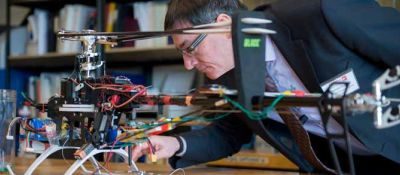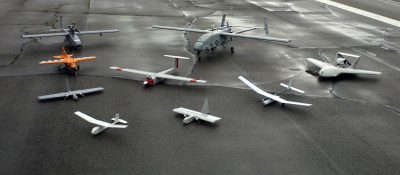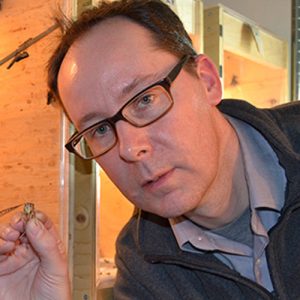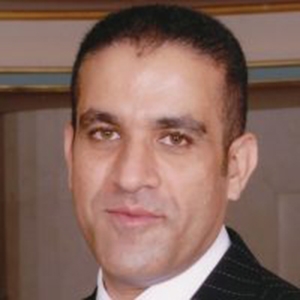UAVs: A Multidisciplinary Approach
Since Carleton’s first student design project in 1991, Carleton University has been intensely active in the field of unmanned aerial vehicles (UAVs) and remotely piloted aircraft systems (RPAS).
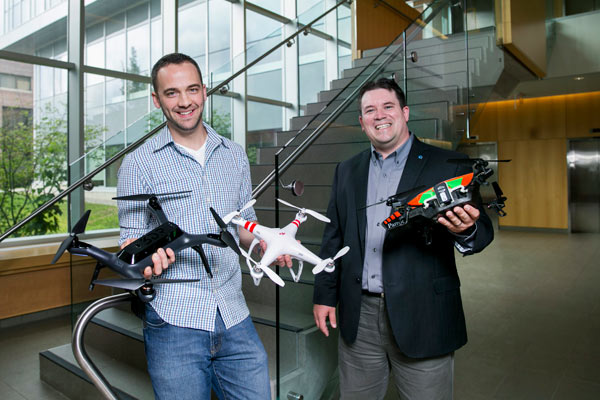
Carleton has a long tradition of UAV training research and both breadth and depth of expertise from the platforms, to payloads, to applications and legal/ethical issues. The Fleet currently comprises the GeoSurv II: a large, fixed-wing, in-house-built UAV development test bed; the Corvus: a mid-sized, fixed-wing electric UAV; 3DR Solo: a multi-rotor commercial Rotary Wing UAV; and an in-house modified single-rotor helicopter. Eight additional multi-rotor UAVs are utilized for mapping, sensing, digitalization, waterway studies, autopilot and flight controls studies, and agricultural surveillance. Several additional micro-UAVs round out the fleet.
Training
Almost 400 undergraduate students from Carleton’s mechanical and aerospace engineering program have been trained in the design, analysis, manufacture, and flight testing of UAVs for an array of missions including pollution monitoring, forest fire spotting, infrastructure protection, and geophysics.
UAV research
Advanced research and development projects, which also involve Masters and Doctoral students, are conducted in collaboration with industry and government partners using both in-house-built UAVs and off-the-shelf commercial systems.
With significant strengths and experience in vehicle design, system integration, airframe structures, vision systems and UAV flight testing, Carleton has accumulated a vast inventory of flight testing equipment and infrastructure. Facilities and capabilities for simulation and modelling of UAVs include off-campus land for flight testing, existing fixed wing and rotary wing UAV test beds, composite fabrication facilities, and custom microelectronics manufacturing.
UAV-assisted research
In addition to research on the UAVs themselves, departments across Carleton’s campus are utilizing the fleet to assist in their own research. These areas include the Departments of Earth Sciences, Civil and Environmental Engineering, Azrieli School of Architecture and Urbanism, Biology, and Philosophy, among others.
Due to the efficiency and functionality of UAVs, they are being deployed across disciplines to examine environments and conduct sampling, stretching the boundaries of how UAVs are currently being used while giving us a better understanding of the world around us.
The Facilities
Carleton Aerospace has several facilities purposed for research in this area:
The Fleet
The Fleet
- GeoSurv II – a large, fixed wing, in-house built UAV development test bed
- Corvus – a mid-sized fixed-wing electric UAV
- 3DR Solo – a multi-rotor commercial UAV Rotary Wing UAV
- In-house modified single-rotor helicopter
- Eight additional multi-rotor UAVs and several micro-UAVs round out the fleet.
